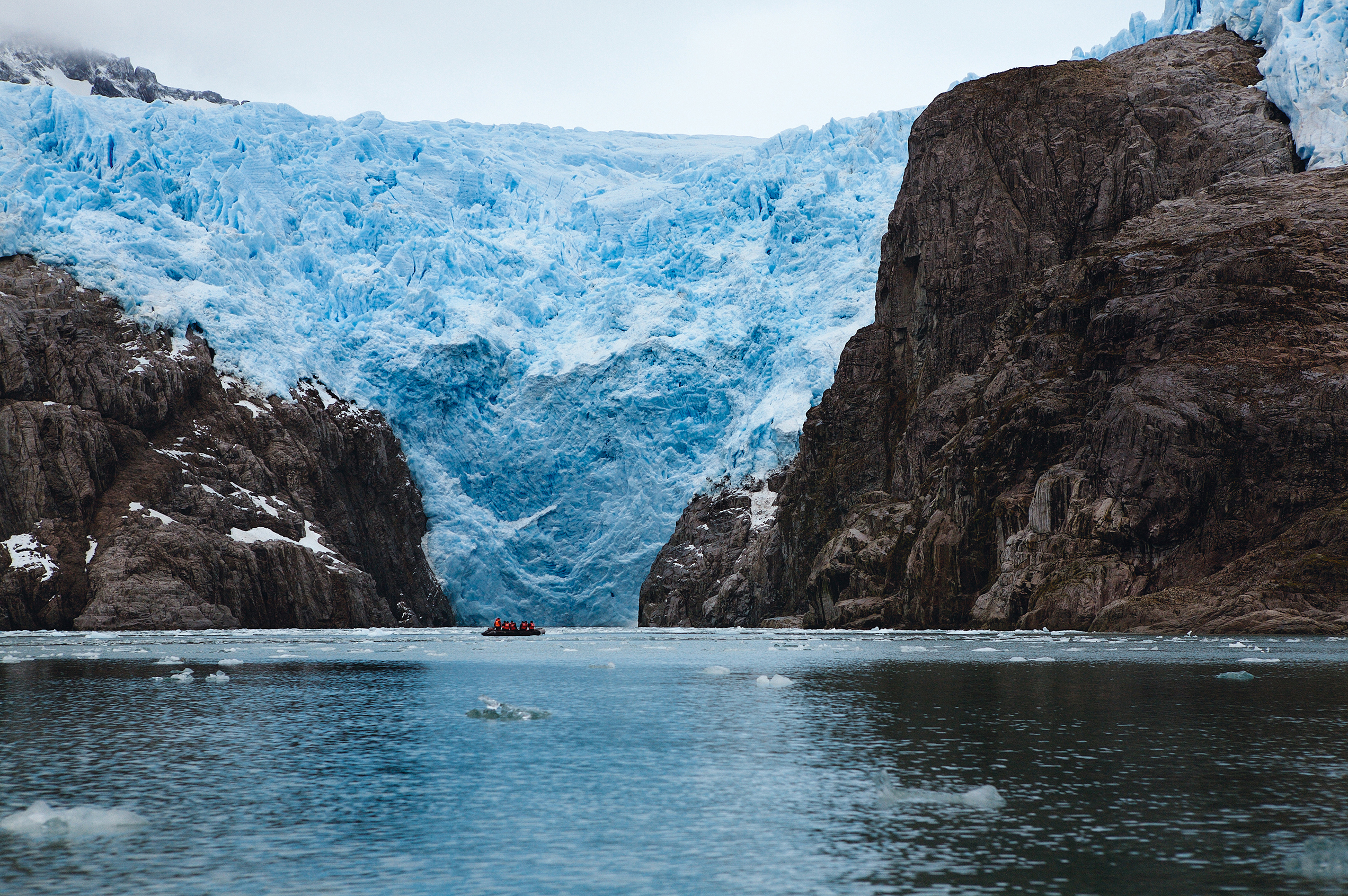
Inria Chile, as the only Inria centre outside France, operates as a bridge for binational cooperation in science and innovation. Since its creation, Inria Chile has consolidated its leadership as a strategic reference point in Latin America in the development and application of high-impact digital sciences and technologies to address climate change and environmental challenges.
On the occasion of COP30, which is taking place from 6 to 21 November 2025 in Latin America for the first time in more than a decade, Inria Chile reviews the various initiatives and projects that the centre has launched in recent years to put digital sciences and technologies at the service of the fight against climate change and the protection of the environment. Discover our special dossier, AI and the environment.
Our selection of articles to learn more about Inria Chile's sustainable artificial intelligence initiatives
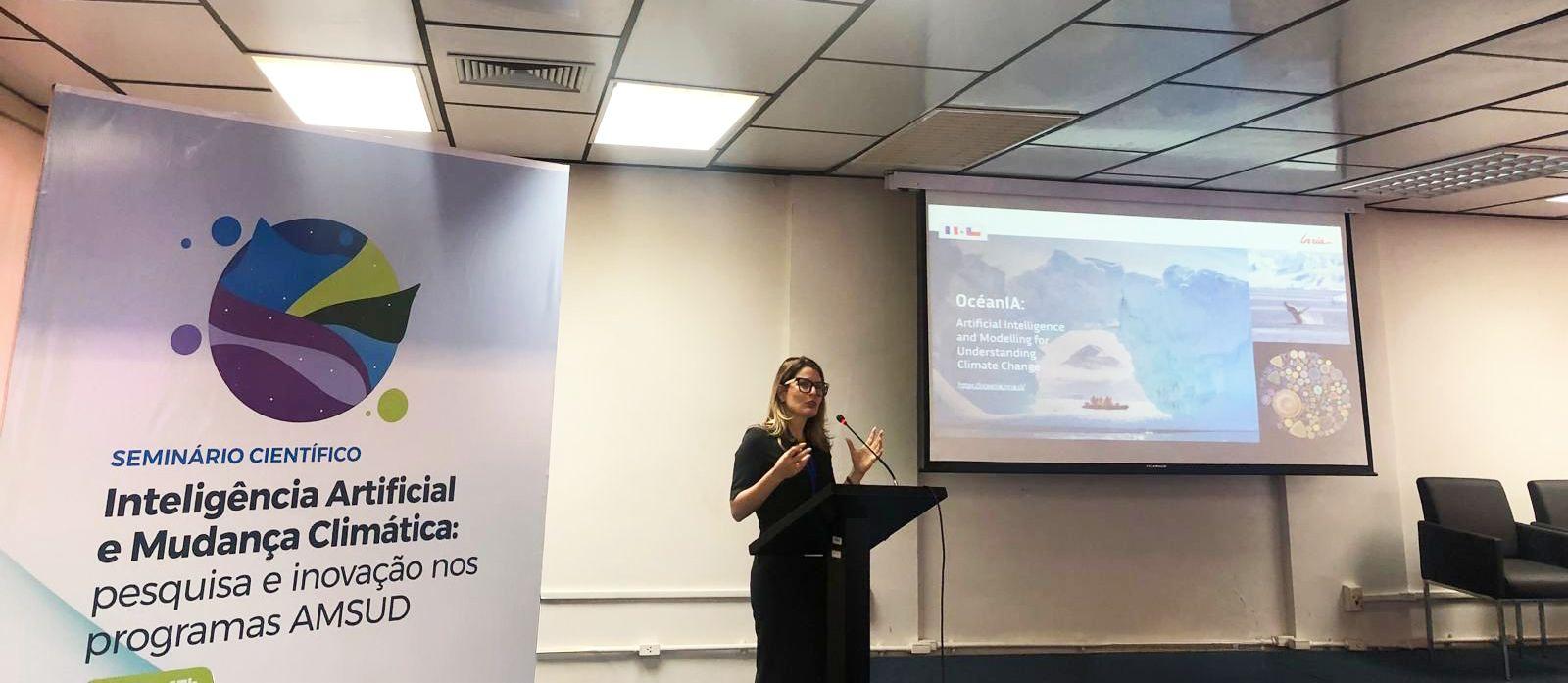
AI and climate change mitigation: Inria Chile presents its progress at a seminar in Brazil
At the AmSud Seminar in Brasilia, Nayat Sánchez-Pi (Inria Chile) spoke about the dual role of AI: as a solution to mitigate climate change and as a challenge due to its own carbon footprint. Sánchez-Pi advocated for “frugal” and sustainable AI, reaffirming the role of the Franco-Chilean Binational Center in coordinating regional and international scientific cooperation.
Artificial intelligence and biological sciences: Inria Chile joins the AI4BIO network of experts
Researchers and institutional representatives gathered at the AI4BIO South Summit 2025 in Goiânia, Brazil, in November 2025, to discuss the crucial convergence between AI and biological sciences. The outcome of the event was the creation of a collaborative network of experts from the Global South, aimed at promoting the development of AI applied to the biosciences.
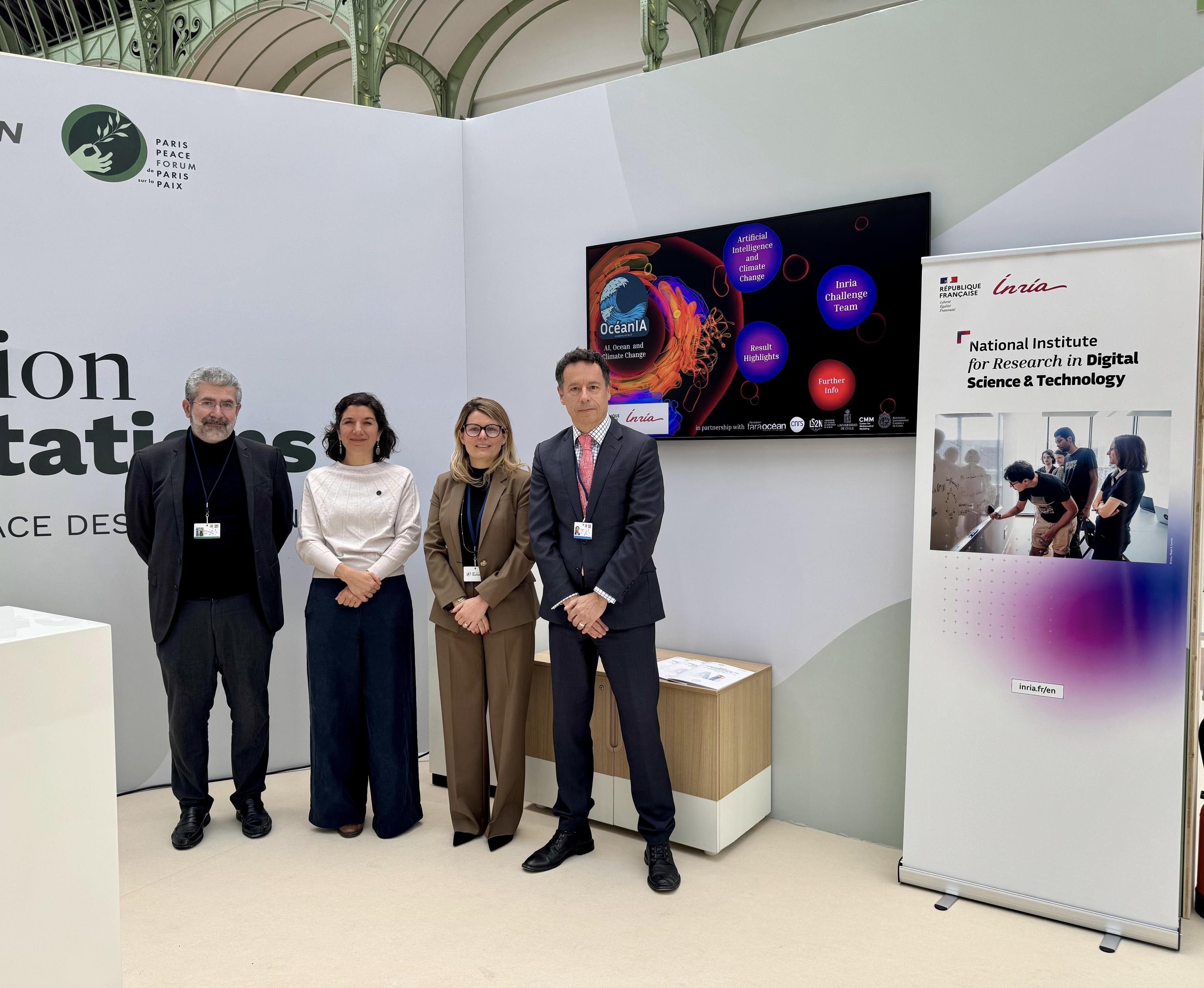
OcéanIA: AI for understanding and protecting the ocean at the Paris AI Summit
OcéanIA is a key Franco-Chilean project at the intersection of AI and climate change led by Inria Chile. Presented at the Paris AI Action Summit, OcéanIA develops AI and modeling tools to understand the structure and dynamics of the ocean, its role in the biosphere, and the fight against climate change.
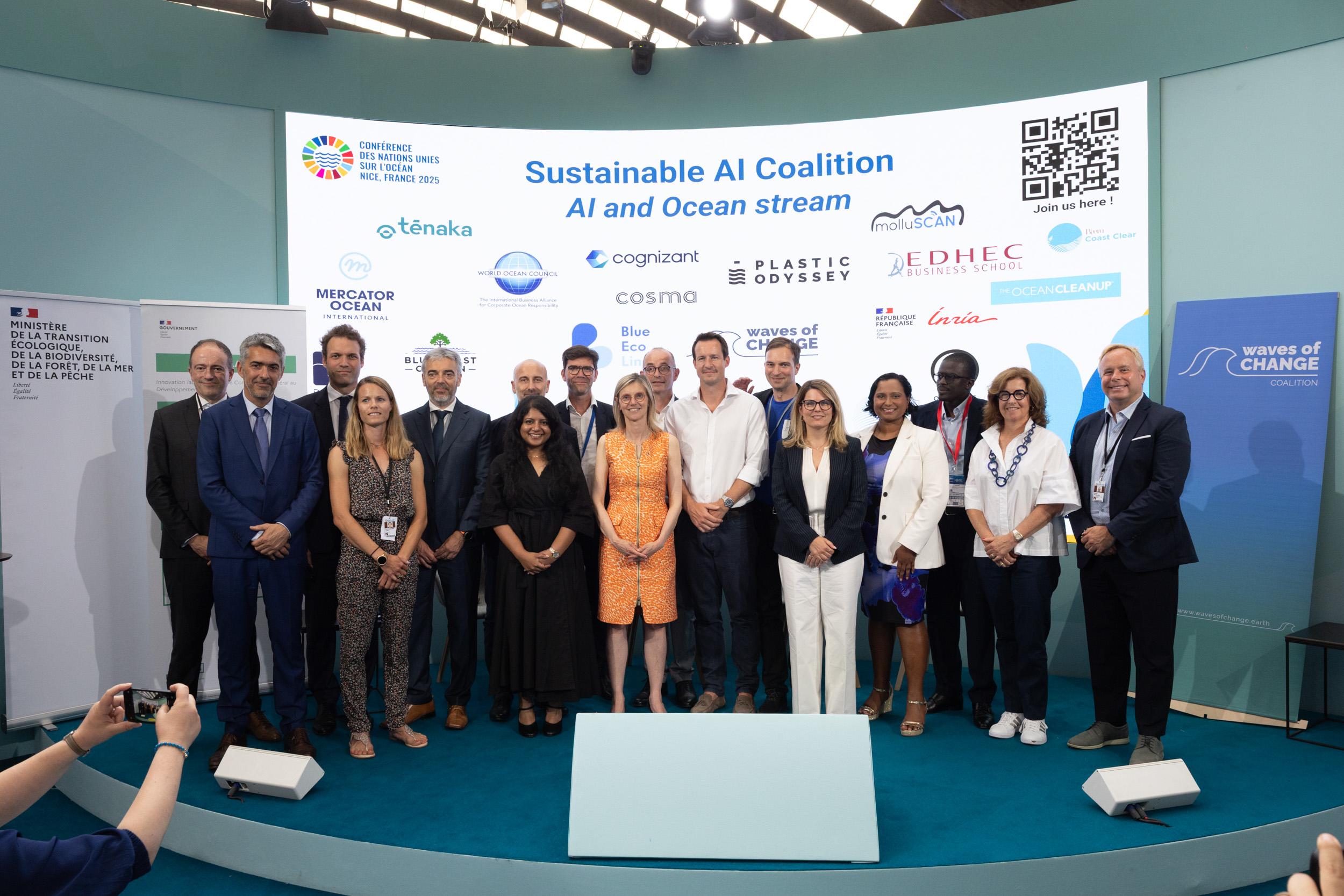
Inria Chile joined the Coalition for Sustainable AI to promote responsible and sustainable AI
Inria Chile and the Franco-Chilean Binational Center on Artificial Intelligence joined the Coalition for Sustainable AI as part of the launch of a new international coalition focus on AI and oceans launched during UNOC3 in Nice, in which Inria Chile participated in June 2025.
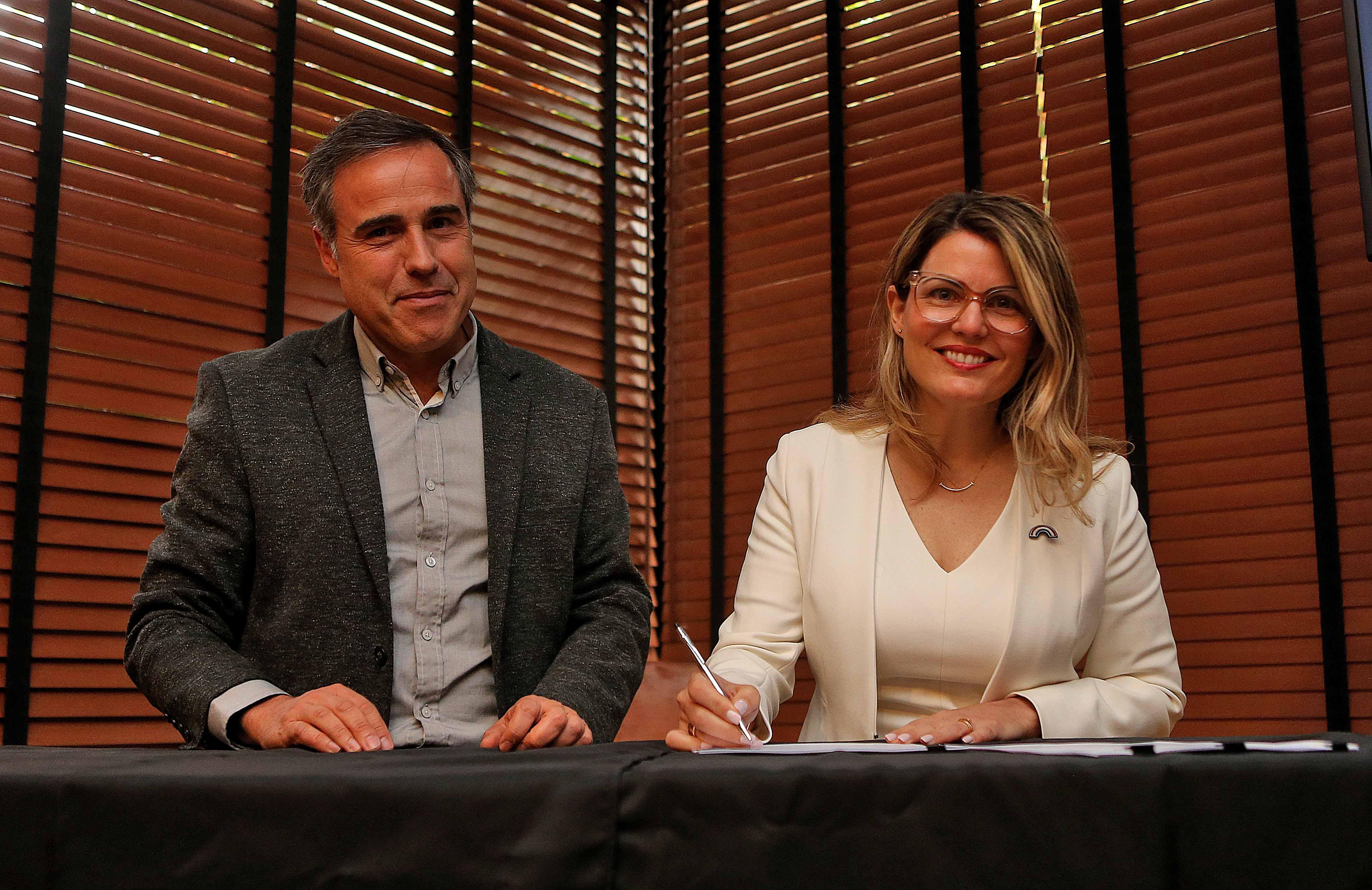
Inria Chile-Concha y Toro Alliance: AI in the Industrial Revolution 5.0
With the Vendimia 5.0 project launched in April 2024, Inria Chile and Viña Concha y Toro seek to optimize the winemaking process using predictive models based on explainable AI to adapt the sector to the effects of climate change and sustainable technological development with humans at the center.

Position Paper for more environmentally friendly AI
The Position Paper, published by Inria and the French Ministry for Ecological Transition in February 2025, identifies five major challenges for reducing the environmental impact of AI. Priorities include developing energy-efficient technologies, using specialized and agile models, improving environmental footprint assessment, and applying circular economy principles to hardware.
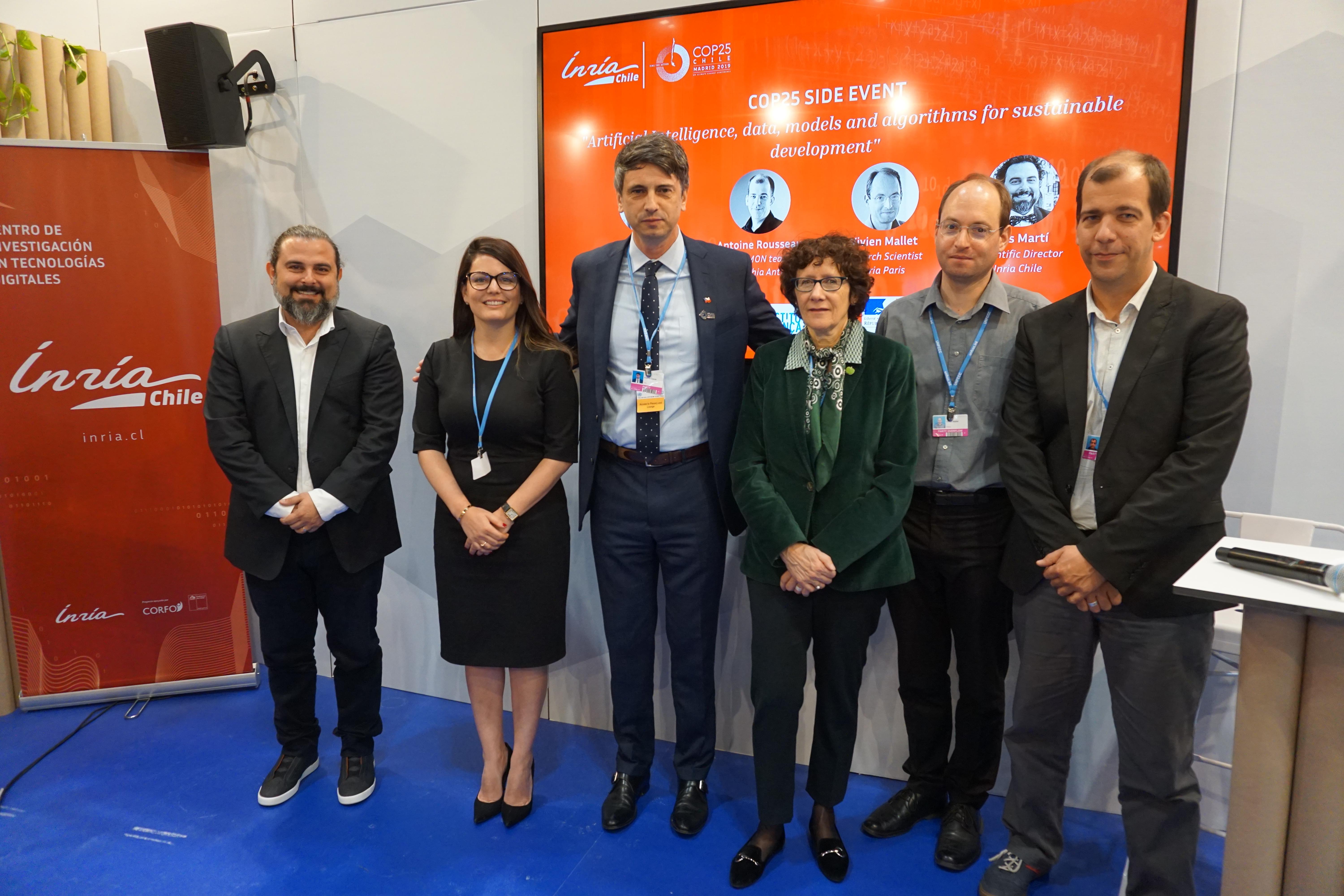
COP25: Inria Chile presents its commitment to AI for sustainable development
At COP25 in Madrid in December 2019, Inria Chile presented how computer science contributes to sustainable development, showcasing various projects in this field alongside researchers from Inria in France.
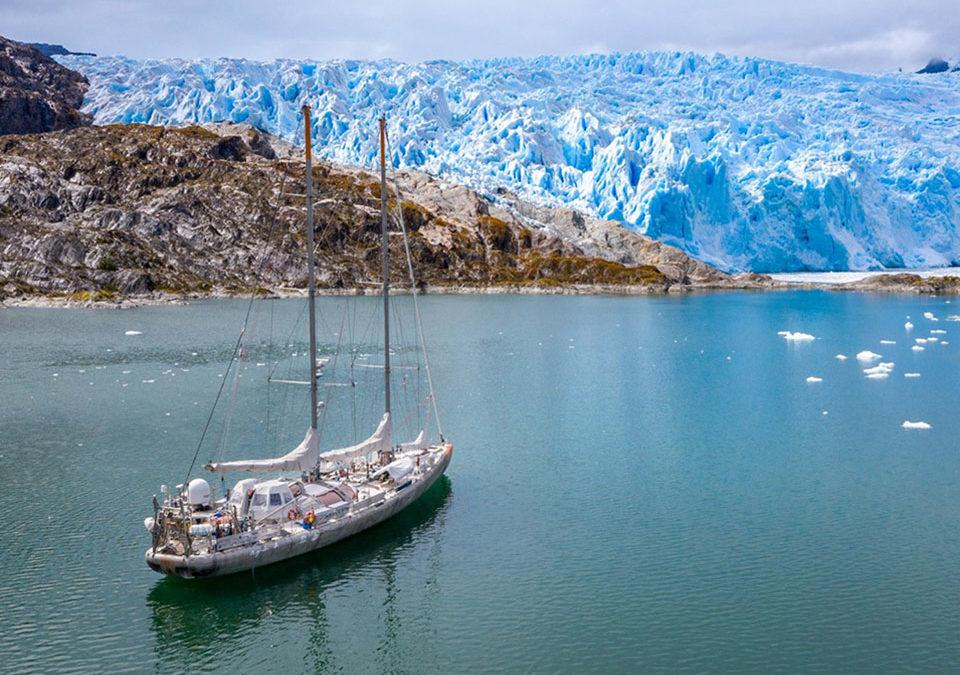
CEODOS-Chile: Consortium for oceanographic research on the Chilean coast
Nine centers of excellence in Chile, including Inria Chile, have signed an agreement to form the CEODOS-Chile consortium. The aim is to quantify the carbon fixed by the Chilean ocean, map planktonic diversity, and develop tools to reduce the impact of climate change in Chile.
Some of our projects developed in the field
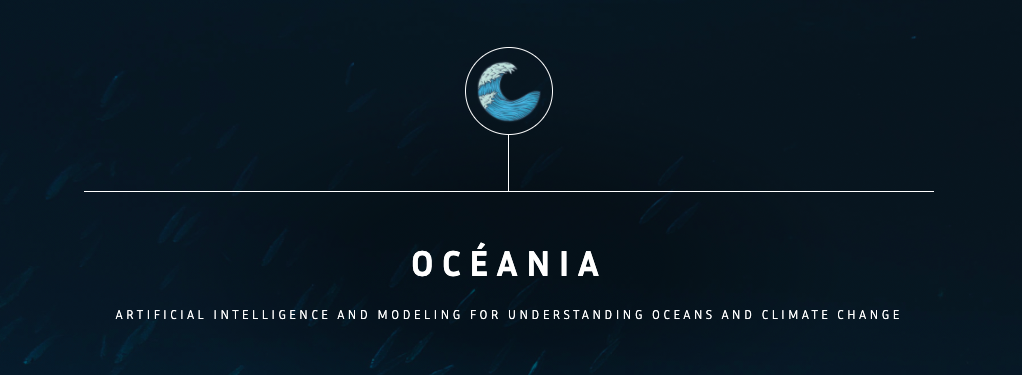
OcéanIA: AI toolbox for understanding the role of the ocean in climate change
OcéanIA is an Inria Challenge led by Inria Chile that brings together the expertise of a group of more than 20 interdisciplinary researchers from Chile and France. It is a pioneering project dedicated to unravelling the complexities of the global ocean symbiont through the use of cutting-edge artificial intelligence and mathematical modelling. By leveraging enormous data sets and advanced computational techniques, the project is revolutionising our understanding of ocean ecosystems, climate change and marine biodiversity.
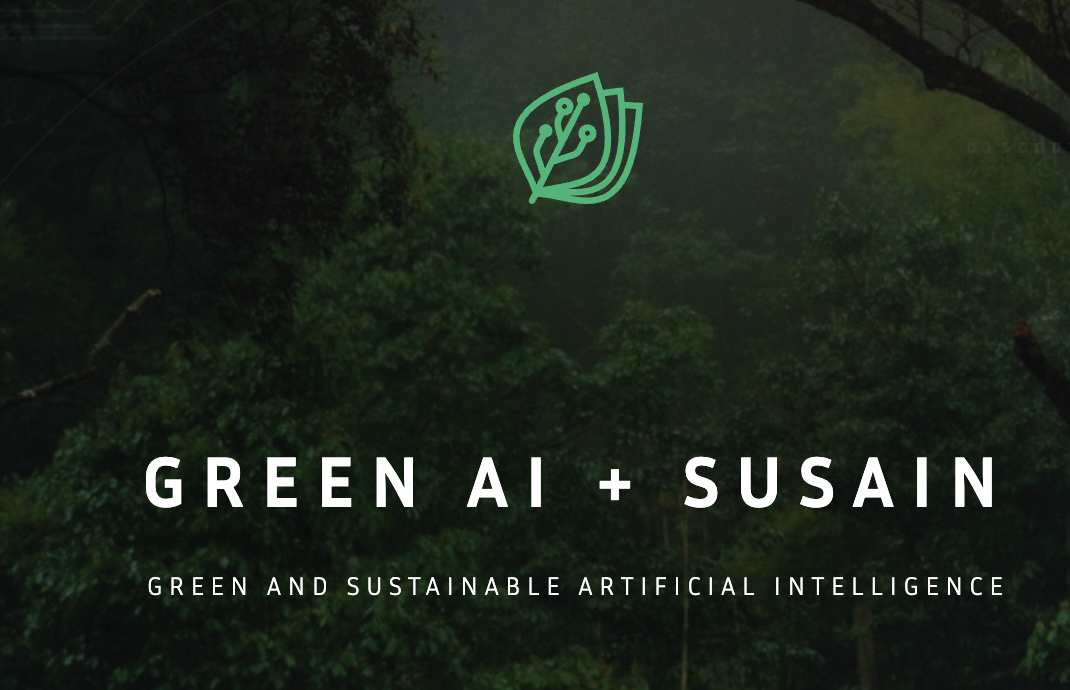
Green AI: for Environmentally Sustainable Artificial Intelligence
The GreenAI project is driven by a consortium of six institutions from five countries, coordinated by Inria Chile and Inria. Its main objective is to study and address the growing ecological impact and high energy consumption of modern machine learning models, proposing a systemic approach that includes rethinking hardware, cloud usage, and the reuse of already trained models.
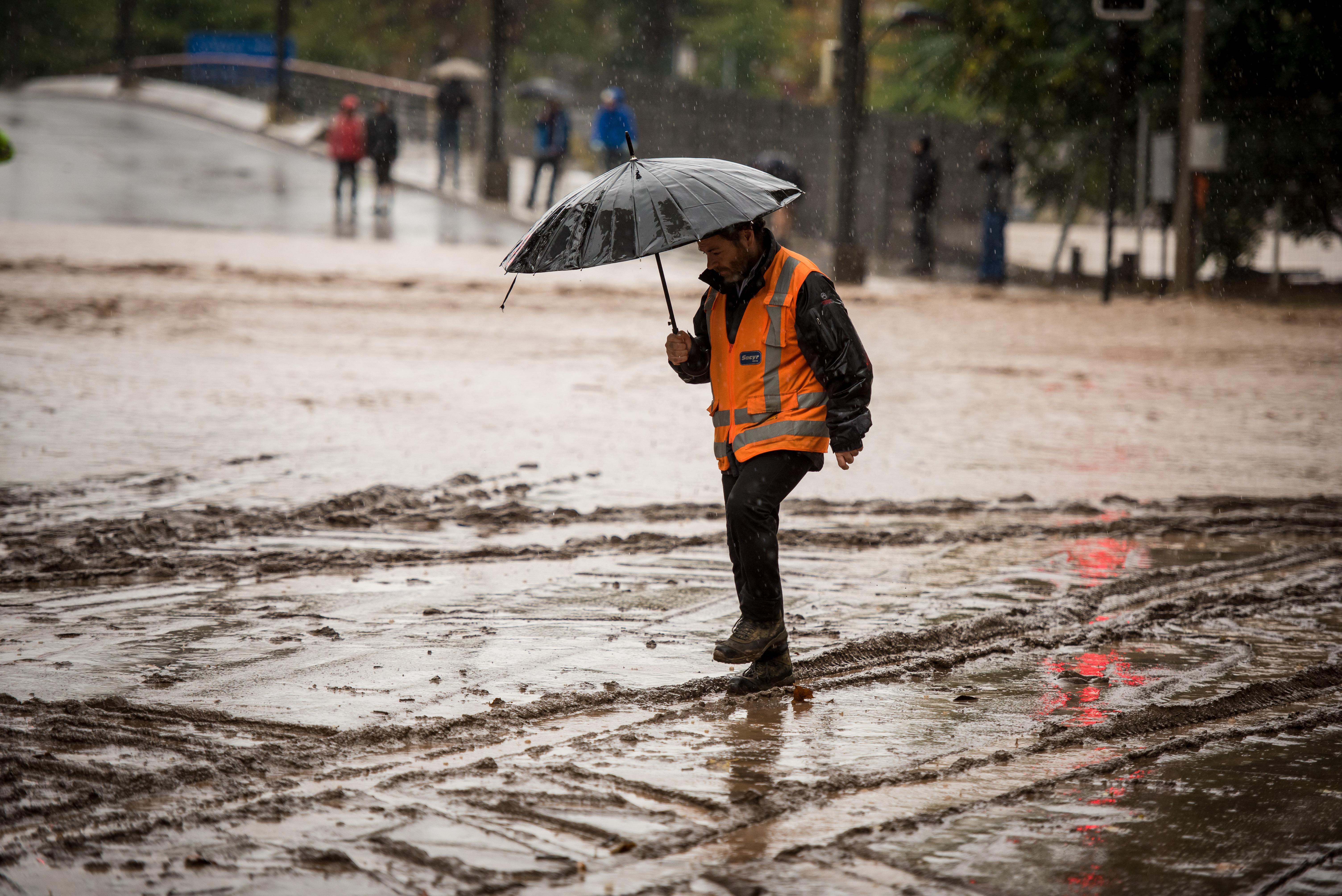
FLOTTE: Understanding urban flooding
The Franco-Chilean FLOTTE Associate Team is developing an advanced numerical tool capable of predicting and understanding the extent of flooding in urban areas, including the transport of sediment and debris. This project addresses the urgent need to prepare for and respond to disasters in a world affected by climate challenges.
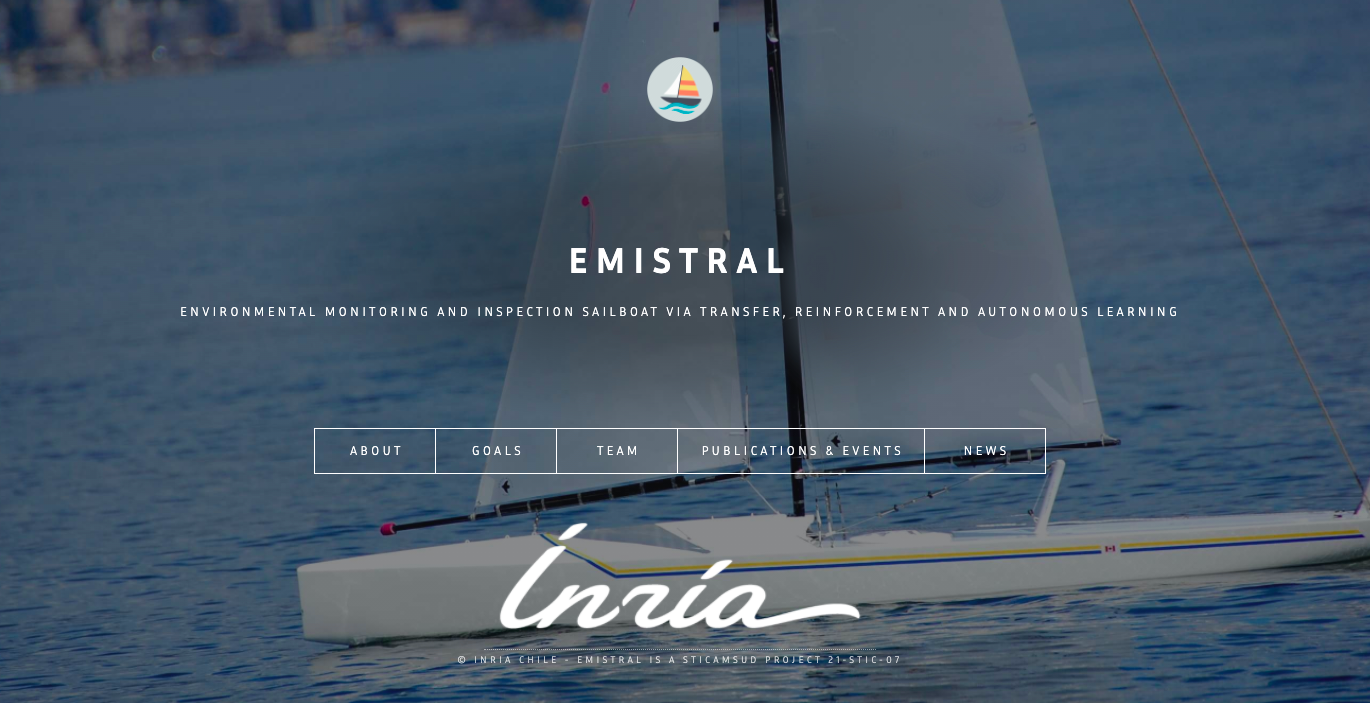
EMISTRAL: artificial intelligence controller for unmanned navigation
As part of the regional EMISTRAL project led by Inria Chile and developed jointly with teams in France and Brazil, a self-learning controller for autonomous sailboats was designed and evaluated based on reinforcement learning, transfer learning and autonomous learning, combining AI, modelling and the Internet of Things.
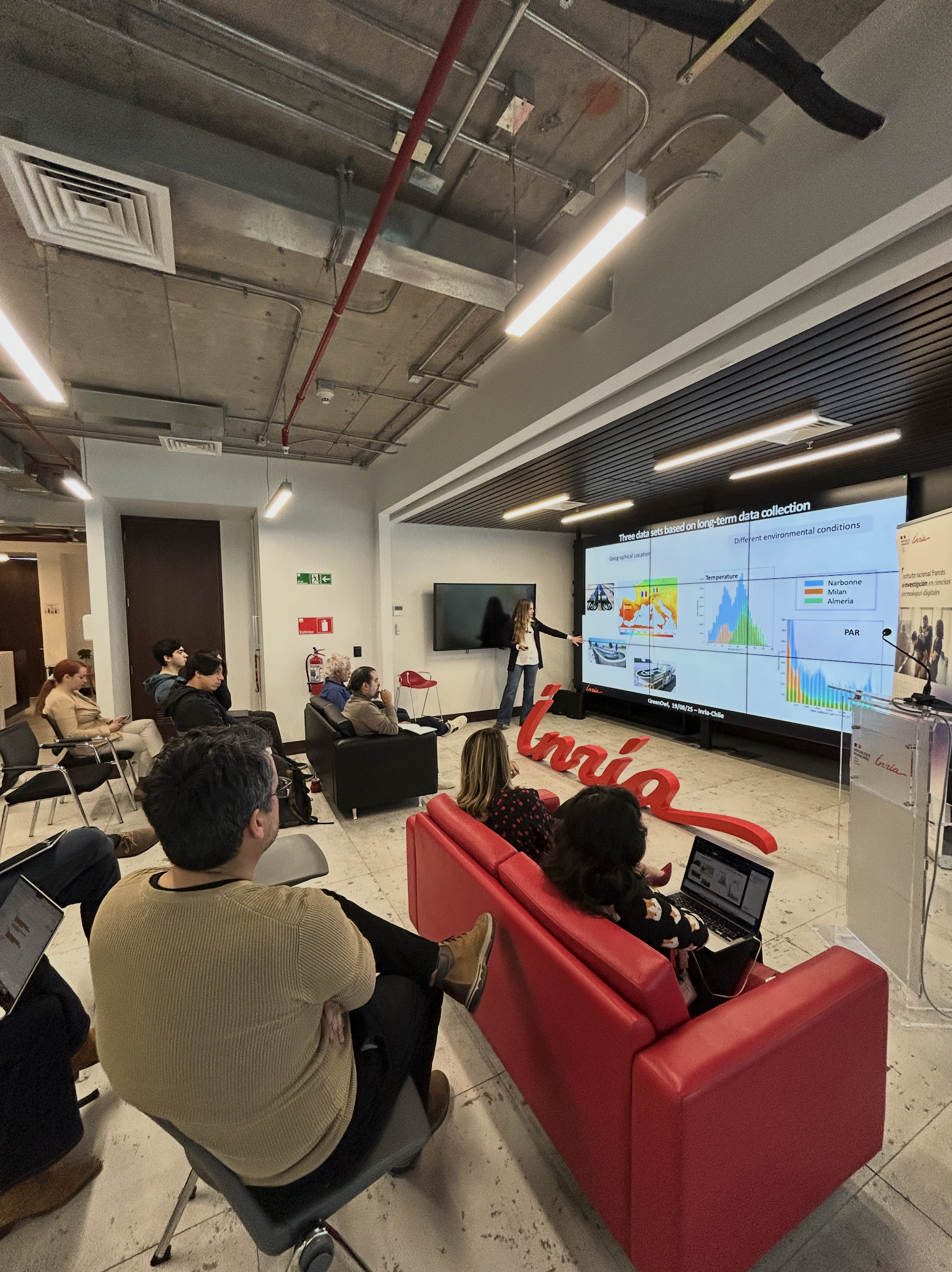
Art'In Blue: Artificial intelligence to understand and master microbial ecosystems
The Associate Team uses Artificial Intelligence for better modelling and control of microbial ecosystems to improve our understanding of microbial dynamics.
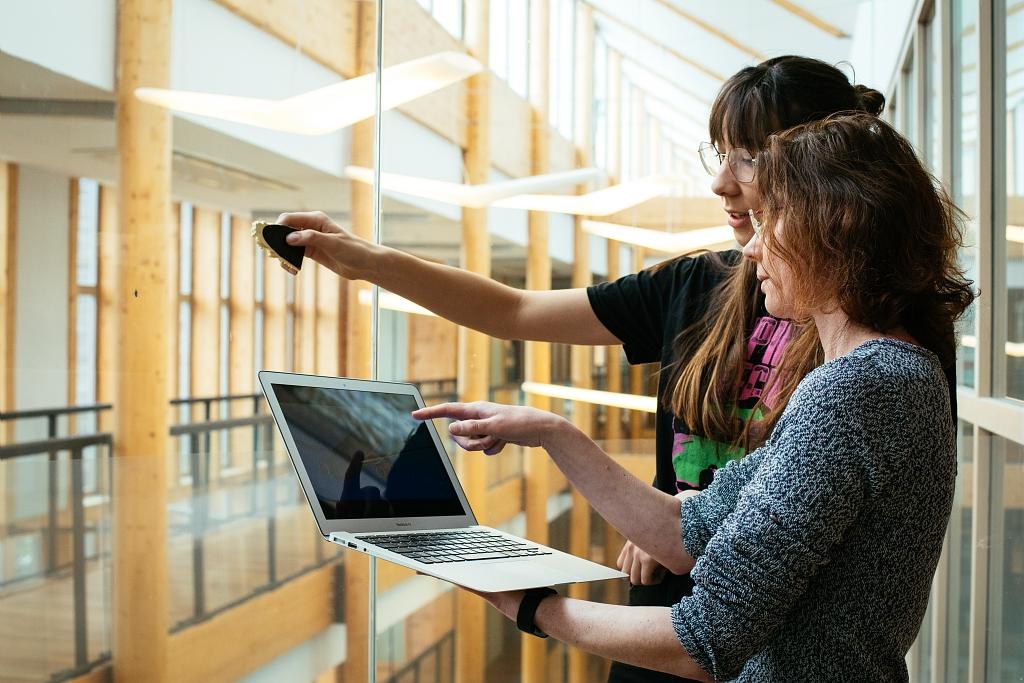
SWAM: Impact assessment of desalination plants on ocean ecology
The Franco-Chilean SWAM Associate Team develops stochastic models to investigate the environmental challenges posed by desalination processes. The project seeks to determine the ecological impact of desalination plants on the marine ecosystem and the need for greater control of their effects.
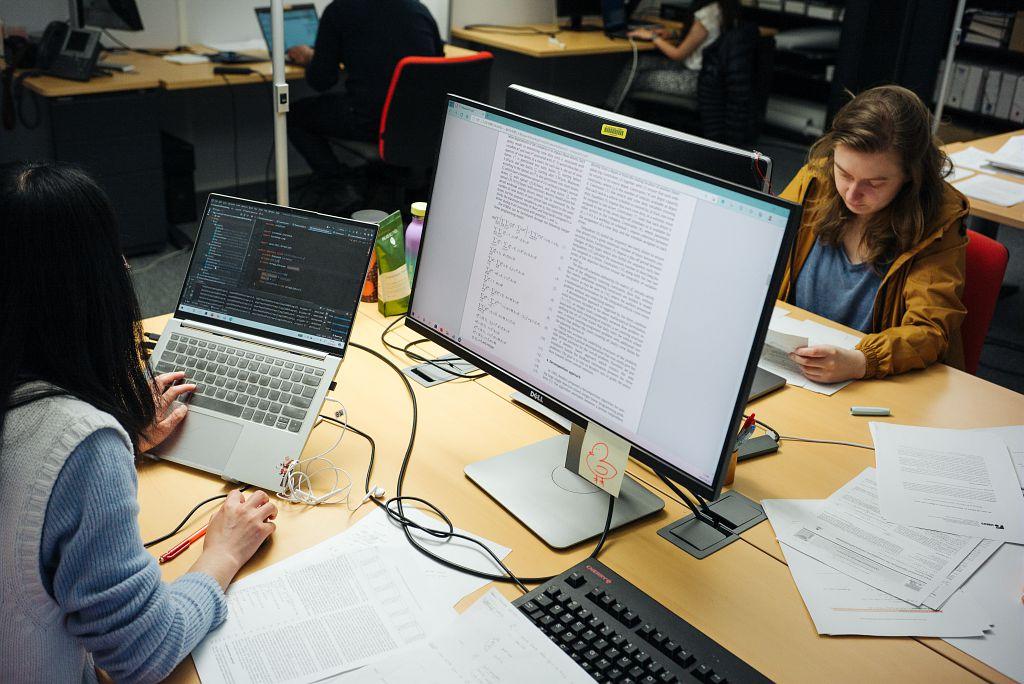
BIO-SEL: Bilevel optimisation for energy and logistics problems
The BIO-SEL Associate Team focuses on two-level programming, a sub-area of optimization that is applied to logistics, security and energy project problems, contributing to greater efficiency in the use of resources and the design of complex systems.
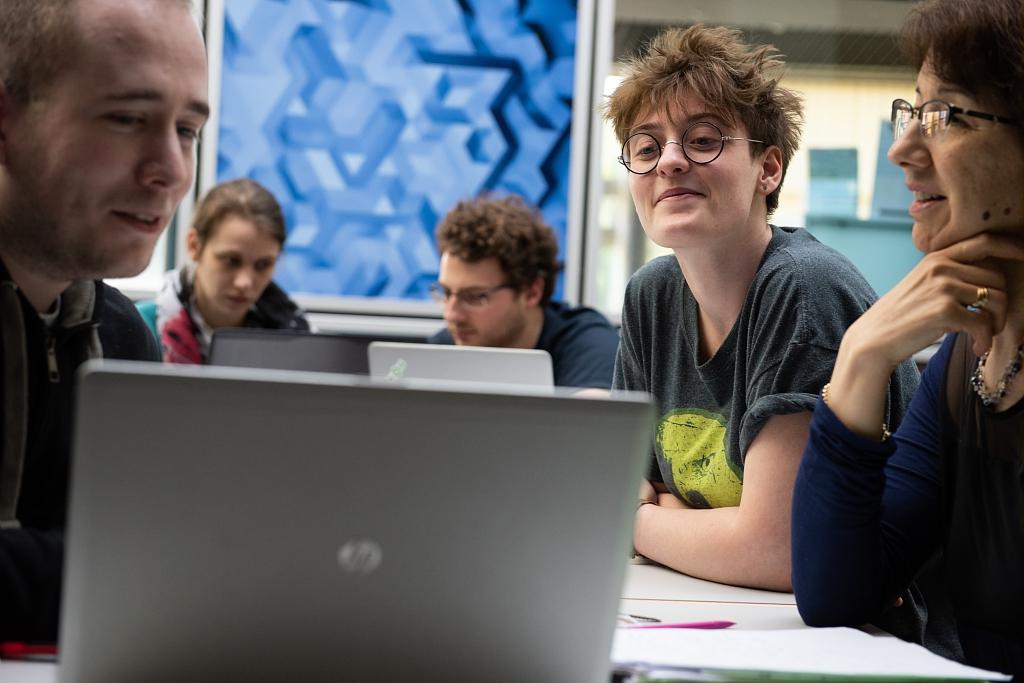
PANDA: Mathematical modelling of waves and ocean phenomena
The PANDA Associate Team focuses on the study of dispersive partial differential equation systems and nonlinear analysis, a fundamental study for modelling wave propagation on the ocean surface.
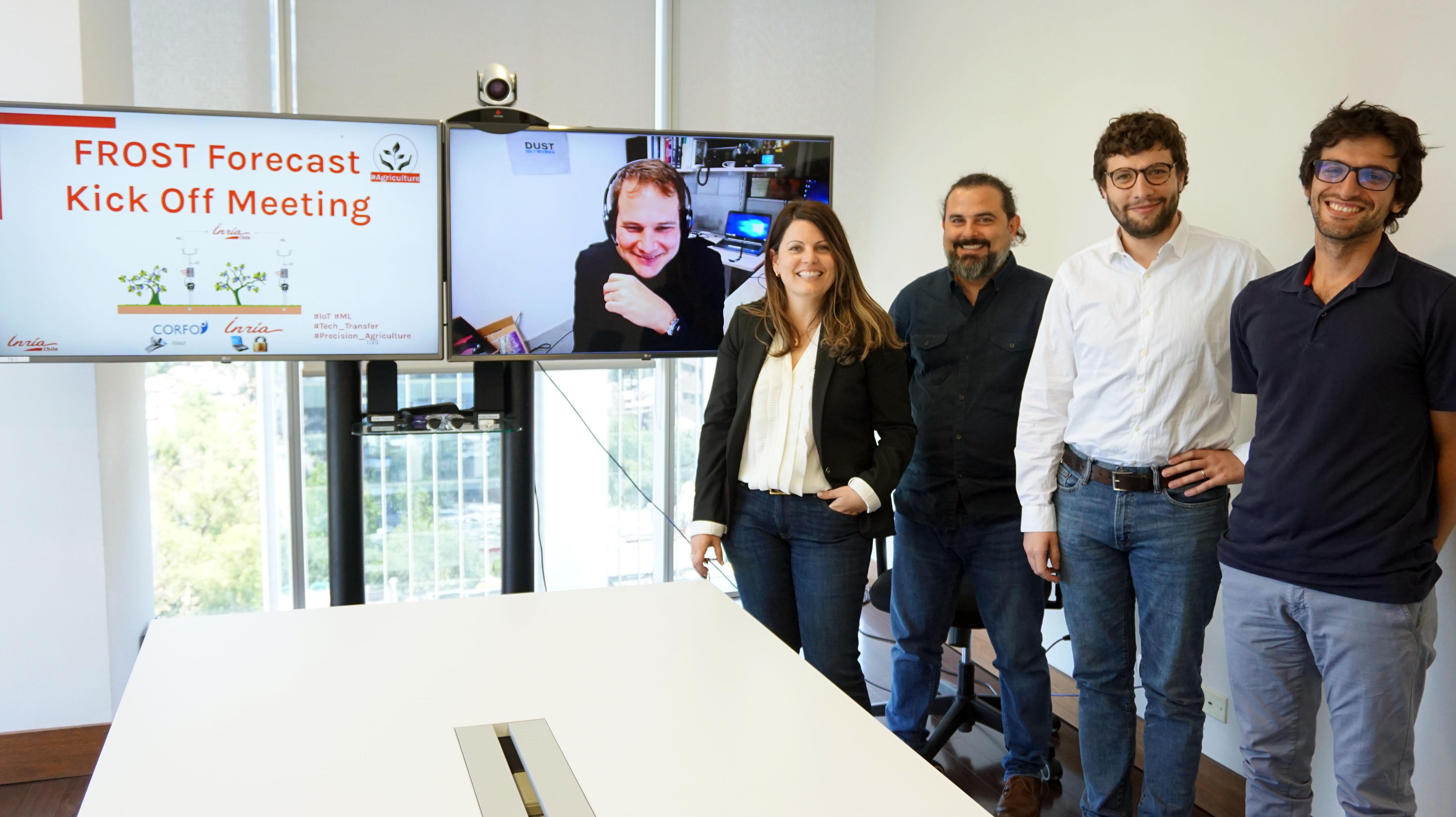
Frost Forecast: frost alert system for farmers
The Frost Forecast project, co-funded by Inria and Corfo, is a precision farming system that uses a machine learning engine to deliver early frost alerts at the micro-farm level so that farmers can focus their efforts and reduce production losses.
